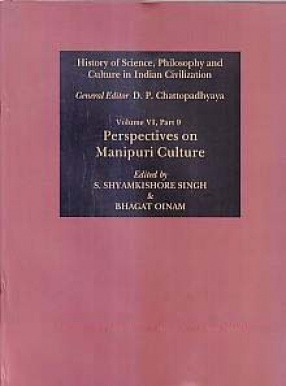
Centre for Studies in Civilizations

46 books

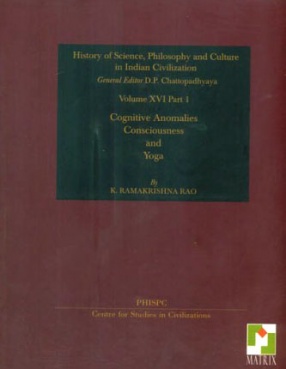
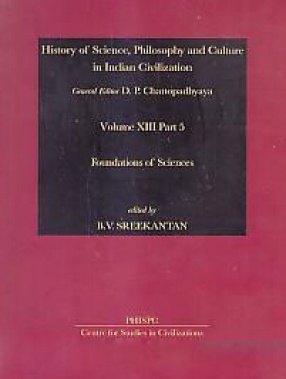
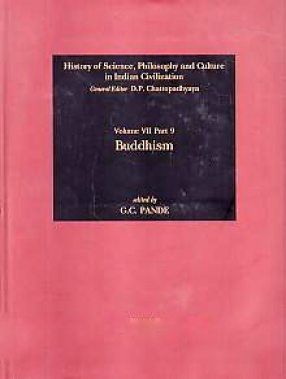
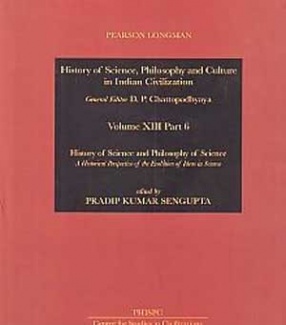
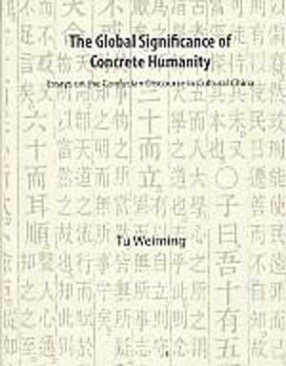
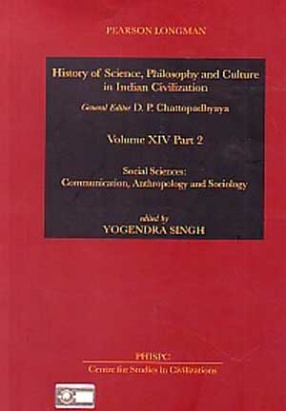
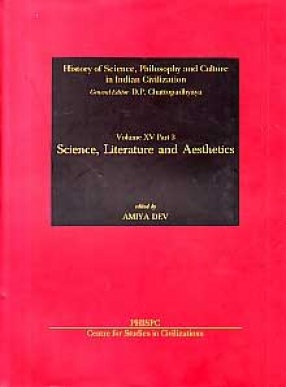
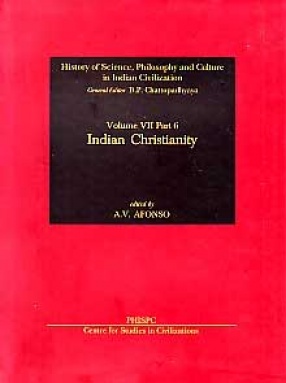


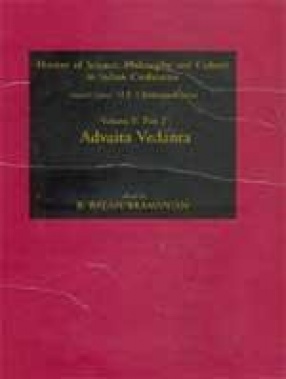
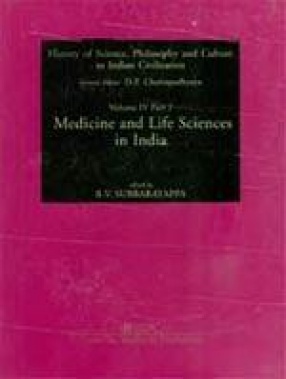
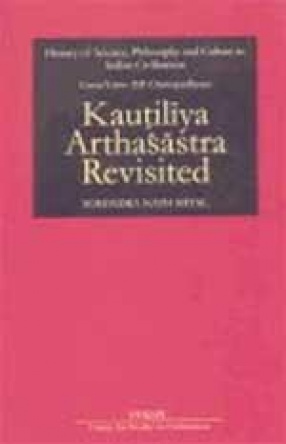


The volumes of the Project of History of Science, Philosophy and culture in Indian Civilization aim to discover the central aspects aspects of India’s heritage and present them in an interrelated manner. In spite of their unitary look, these volumes recognize the difference between the areas of material civilization and those of ideational culture. The Project is not being executed by a single group of thinkers, methodologically uniform or ideologically ...


Buddhism is one of the major religions of the world. It has different strands and is diverse in its spiritual and philosophical structures. In recent times, it has gained popularity especially in the West. Many of its aspects have attracted scholars from different disciplines—history, philosophy, literature and the arts.
This volume takes up aspects of Buddhism ranging from archaeology and the date of the Buddha to early Buddhist faith, Mahayana and ...
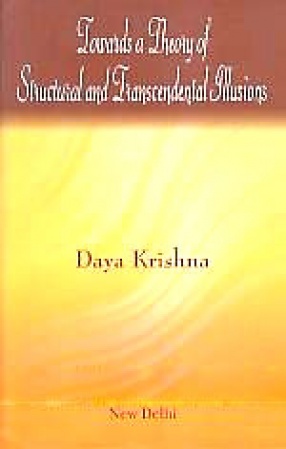
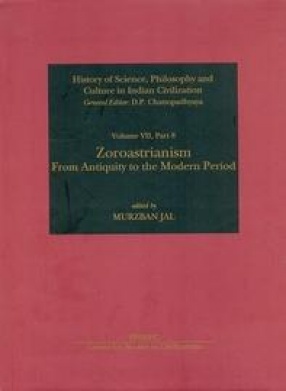
The volumes of the PROJECT ON THE HISTORY OF SCIENCE, PHILOSOPHY AND CULTURE IN INDIAN CIVILIZATION aim at discovering the main aspects of India’s heritage and present them in an interrelated way. These volumes, in spite of their unitary look, recognize the difference between the areas of material civilization and those of ideational culture. The Project is not being executed by a single group of thinkers who are methodologically uniform or ideologically ...
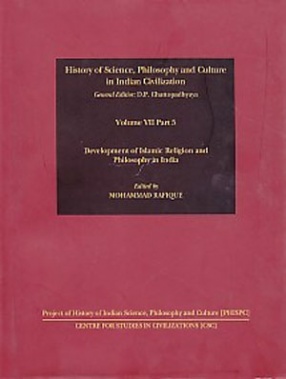
The volumes of Project on the History of Science, Philosophy and Culture in Indian Civilization aim at discovering the main aspects of India's heritage and present them in an interrelated way. In spite of their unitary look, these volumes recognize the difference between the areas of material civilization and those of ideational culture. The project is not being executed by a single group of thinkers and writers who are methodologically uniform or ...
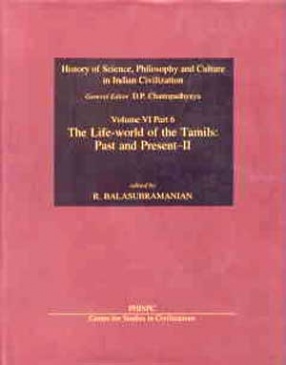
The volumes of the Project on the History of Science, Philosophy and Culture in Indian Civilization aim at discovering the main aspects of India's heritage and present them in an interrelated way. These volumes, in spite of their unitary look, recognize the difference between the areas of material civilization and those of ideational culture. The Project is not being executed by a single group of thinkers and writers who are methodologically uniform or ...

Section 1. The cosmos and the classical world Section 2. The quantum world and elementary particles Section 3. Machine, life and consciousness.

This collection of essays is at present the most comprehensive presentation of Tu Weiming's intellectual pursuit for the last three decades. Part I offers an insight on the thoughtful and influential discourses he has been instrumental in developing: cultural China, the implications of the rise of East Asia, the significance of the Confucian cultural area in the modernizing process, the continuous presence of traditions in modernity, reflection on the ...
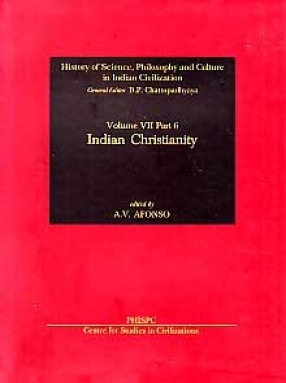
This volume on ‘Indian Christianity’ represents the unique character of Christian belief systems and its practice in the Indian context, reflected in the divergent cultural and ethnic expressions that have been theologically justified by various individuals and groups representing diverse Christian denominations.The uniqueness of Christian faith and practice lies in its claim that the religion is based upon love. In a comparative study of ...


section 1. Issues in focus -- section 2. World thought systems : some instances -- section 3. Indian modernity : some instances.


The Volume is a part in the series of the Project (PHISPC), the aim of which is to discover the main aspects of Indian culture and civilization in the given socio-historical matrix narrated by Indian historians and historiographers. Every age rewriters its own history with fresh reassertion of having discovered newer truths. The most important characteristic of being human is to be self-aware and to deepen the knowledge of this self-consciousness in all ...

The volumes of the Project of History of Science, Philosophy and Culture in Indian Civilization aim to discover the central aspects of India's heritage and present them in an interrelated manner. In spite of their unitary look, these volumes recognize the difference between the areas of material civilization and those of ideational culture. The Project is not being executed by a single group of thinkers, methodologically uniform or ideologically identical in ...

The volumes of the Project on The History of Science, Philosophy and Culture in Indian Civilization aim at discovering the main aspects of India's heritage and present them in an interrelated way. In spite of their unitary look, they recognize the difference between the areas of material civilization and those of ideational culture. The Project is executed by scholars with different ideological persuasions and methodological approaches and is marked by ...

The volumes of the Project on The History of Science, Philosophy and Culture in Indian Civilization aim at discovering the main aspects of India’s heritage and present them in an interrelated way. In spite of their unitary look, they recognize the difference between the areas of material civilization and those of ideational culture. The Project is executed by scholars with different ideological persuasions and methodological approaches and is marked by ...
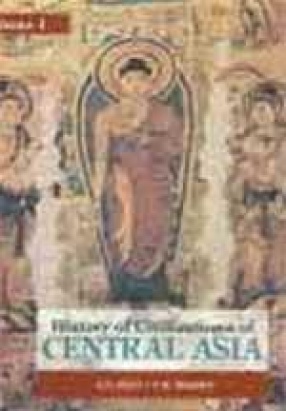
The volumes of the Project on the History of Science, Philosophy and Culture in Indian Civilization aim at discovering the main aspects of India's heritage and present them in an interrelated way. These volumes, in spite of their unitary look, recognise the difference between the areas of material civilization and those of ideational culture. The Project is not being executed by a single group of thinkers and writers whore are methodologically uniform or ...
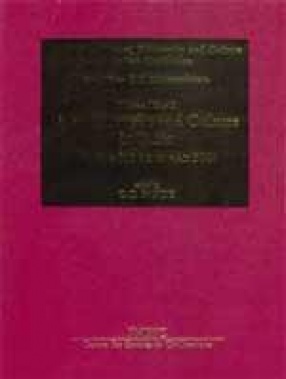
The volumes of the Project on the History of Science, Philosophy and Culture in Indian Civilization aim at discovering the main aspects of India’s heritage and present them in an interrelated way. These volumes, in spite of their unitary look, recognise the difference between the areas of material civilization and those of ideational culture. The project is not being executed by a single group of thinkers and writers who are methodologically uniform or ...

The volumes of the Project on the History of Science, Philosophy and Culture in Indian Civilization aim at discovering the main aspects of India's heritage and present them in an interrelated way. These volumes, in spite of their unitary look, recognise the difference between the areas of material civilization and those of ideational culture. The project is not being executed by a single group of thinkers and writers who are methodologically uniform or ...
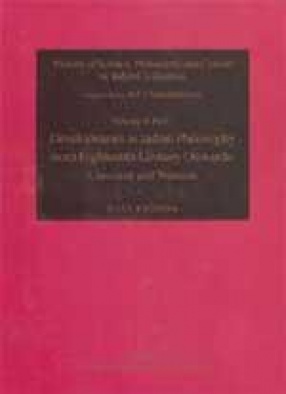
The volumes of the Project on the History of Science, Philosophy and Culture in Indian Civilization aim at discovering the main aspects of India’s heritage and present them in an interrelated way. These volumes, in spite of their unitary look, recognise the difference between the areas of material civilization and those of ideational culture. The project is not being executed by a single group of thinkers and writers who are methodologically uniform or ...
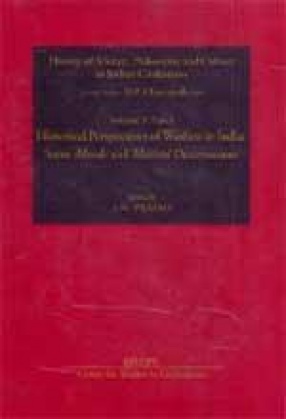
The volumes of the Project on the History of Science, Philosophy and Culture in Indian Civilization aim at discovering the main aspects of India's heritage and present them in an interrelated way. These volumes, in spite of their unitary look, recognise the difference between the areas of material civilization and those of ideational culture. The Project is not being executed by a single group of thinkers and writers who are methodologically uniform or ...

In this book S.N. Mittal examines in detail and refutes the views held by many scholars that the text of Kautiliya Arthasastra was not written by a single author and that the date of its composition cannot be attributed to a single century. The book has been primarily written as a reply to T.R. Trautmann's Kautilya and the Arthasastra, in which he tried to prove, with the help of statistics, that the Arthasastra was a compilation of writings by three or four ...
